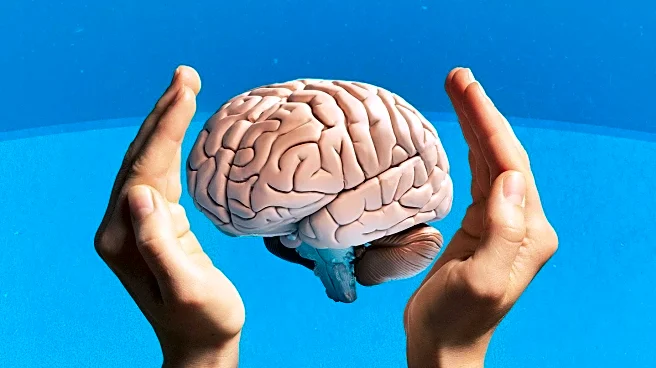What's Happening?
A recent study has analyzed nine independent datasets to explore the relationship between psychopathology dimensions and cognitive abilities. The research involved 9,565 individuals, including patients
about to start mental health treatment and healthy individuals. The study focused on model-based planning and metacognitive bias, using self-report clinical questionnaires to assess psychiatric symptoms such as depression, anxiety, and compulsivity. The findings suggest that dimensions like 'Anxious-depression' and 'Compulsivity and Intrusive Thought' are associated with cognitive processes. The study utilized factor analysis to derive these dimensions, which were then applied to other datasets for validation.
Why It's Important?
Understanding the link between psychopathology dimensions and cognitive abilities is crucial for developing targeted mental health treatments. By identifying specific dimensions that affect cognition, healthcare providers can tailor interventions to improve cognitive functions in patients with mental health disorders. This research could lead to more effective therapies and better outcomes for individuals suffering from conditions like depression and anxiety. Additionally, the study's methodology provides a robust framework for future research in the field of psychiatry, potentially influencing public health policies and resource allocation.
What's Next?
The study's findings may prompt further research into the development of personalized treatment plans based on individual psychopathology profiles. Healthcare providers might begin integrating these dimensions into diagnostic criteria and treatment protocols. Additionally, the research could influence the design of cognitive behavioral therapies, focusing on specific cognitive deficits associated with different psychopathology dimensions. As the field advances, there may be increased collaboration between researchers and clinicians to refine these approaches and improve patient care.
Beyond the Headlines
The study highlights the importance of considering individual differences in cognitive abilities when addressing mental health issues. It raises ethical questions about the use of self-report questionnaires and the potential for bias in psychiatric assessments. Furthermore, the research underscores the need for culturally sensitive approaches, as sociodemographic factors like age, gender, and education can influence cognitive outcomes. Long-term, this work could shift the focus of mental health treatment from symptom management to cognitive enhancement.










